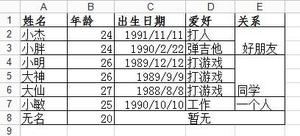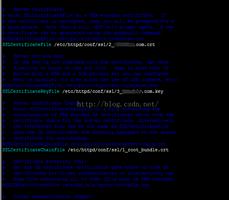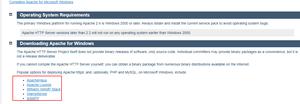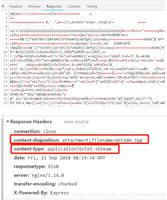PHP操作Elasticsearch7.6

目录
- 安装操作Elasticsearch的PHP库
- PHP连接Elasticsearch
- 创建索引和映射
- 添加文档
- 单一文档索引
- 批量(bulk)索引
- 获取文档
- 更新文档
- 部分更新
- script更新
- 删除文档
首先打开Elasticsearch官网了解对应编程语言的API https://www.elastic.co/guide/en/elasticsearch/client/index.html
点击 PHP API即可查看当前7.X版本的文档内容了
安装操作Elasticsearch的PHP库
我们使用TP5来作为示例
首先需要安装操作Elasticsearch的PHP客户端库,我们打开https://packagist.org/,搜索Elasticsearch。
这里有个Elasticsearch-PHP和Elasticsearch版本的对照表,我们需要根据我们自己使用的Elasticsearch的版本下载对应的Elasticsearch-PHP
由于我的Elasticsearch版本是7.6.2,所以这里我们可以下载最新的Elasticsearch-PHP版本为7.8.0
我们进入到自己的项目目录里安装Elasticsearch-PHP
composer require elasticsearch/elasticsearch=7.8.*PHP连接Elasticsearch
官方配置文档:https://www.elastic.co/guide/en/elasticsearch/client/php-api/current/configuration.html
$hosts = [ "127.0.0.1:9200", //IP+端口
];
$client = ElasticsearchClientBuilder::create()->setHosts($hosts)->build();
var_dump($client);
创建索引和映射
创建一个名为users的索引同时创建映射,并制定映射中各个字段的类型
$hosts = [ "127.0.0.1:9200", //IP+端口
];
$client = ElasticsearchClientBuilder::create()->setHosts($hosts)->build();
$params = [
"index" => "users",
"body" => [
"settings" => [
"number_of_shards" => 3,
"number_of_replicas" => 2
],
"mappings" => [
"_source" => [
"enabled" => true
],
"properties" => [
"name" => [
"type" => "keyword"
],
"age" => [
"type" => "integer"
],
"mobile" => [
"type" => "text"
],
"email" => [
"type" => "text"
],
"birthday" => [
"type" => "date"
],
"address" => [
"type" => "text"
]
]
]
]
];
// Create the index with mappings and settings now
$response = $client->indices()->create($params);
dump($response);
添加文档
当你要在 Elasticsearch 增加文档时,你就需要索引 JSON 文档。JSON 文档会映射 PHP 关联数组,因为 PHP 关联数组可以 encode 为 JSON 数据格式。
因此在 Elasticsearch-PHP 中你可以传递关联数组给客户端来索引文档。我们会概述几种方法来增加文档到 Elasticsearch。
单一文档索引
当索引一个文档时,你可以提供一个 ID 或者让 Elasticsearch 自动生成。
现在有如下数据,我们将其添加到users索引中
$hosts = [ "127.0.0.1:9200", //IP+端口
];
$client = ElasticsearchClientBuilder::create()->setHosts($hosts)->build();
$params = [
"index" => "users",
"id" => 1,
"body" => [
"name" => "张三",
"age" => 10,
"email" => "zs@gmail.com",
"birthday" => "1990-12-12",
"address" => "北京"
]
];
$client->index($params);
通过Kibana可以查看到已经成功添加到Elasticsearch中
批量(bulk)索引
Elasticsearch 也支持批量(bulk)索引文档。bulk API 要求提供 JSON 格式的 action/元数据 键值对。在 PHP 中构建批量文档数据也是相似的。你首先要创建一个 action 数组对象(如 index 对象),然后你还要创建一个 body 对象。而 PHP 程序则重复上述操作构建文档数据。
$hosts = [ "127.0.0.1:9200", //IP+端口
];
$client = ElasticsearchClientBuilder::create()->setHosts($hosts)->build();
$arr = [
["name" => "张三", "age" => 10, "email" => "zs@gmail.com", "birthday" => "1990-12-12", "address" => "北京"],
["name" => "李四", "age" => 20, "email" => "ls@gmail.com", "birthday" => "1990-10-15", "address" => "河南"],
["name" => "白兮", "age" => 15, "email" => "bx@gmail.com", "birthday" => "1970-08-12", "address" => "杭州"],
["name" => "王五", "age" => 25, "email" => "ww@gmail.com", "birthday" => "1980-12-01", "address" => "四川"],
];
foreach ($arr as $key => $document) {
$params["body"][] = [
"index" => [
"_index" => "users",
"_id" => $key
]
];
$params["body"][] = [
"name" => $document["name"],
"age" => $document["age"],
"email" => $document["email"],
"birthday" => $document["birthday"],
"address" => $document["address"]
];
}
if (isset($params) && !empty($params)) {
$client->bulk($params);
}
如果数据量不多可以用上面的方法,如果数据量很多的话,我们就可以考虑分次添加
获取文档
Elasticsearch 提供实时获取文档的方法。这意味着只要文档被索引且客户端收到消息确认后,你就可以立即在任何的分片中检索文档。Get 操作通过 index/type/id 方式请求一个文档信息:
$hosts = [ "127.0.0.1:9200", //IP+端口
];
$client = ElasticsearchClientBuilder::create()->setHosts($hosts)->build();
$params = [
"index" => "users",
"id" => 1
];
$response = $client->get($params);
dump($response);
更新文档
部分更新
如果你要部分更新文档(如更改现存字段,或添加新字段),你可以在 body 参数中指定一个 doc 参数。这样 doc 参数内的字段会与现存字段进行合并。
$hosts = [ "127.0.0.1:9200", //IP+端口
];
$client = ElasticsearchClientBuilder::create()->setHosts($hosts)->build();
$params = [
"index" => "users",
"id" => 1,
"body" => [
"doc" => [
"mobile" => "17612345678"
]
]
];
$response = $client->update($params);
dump($response);
script更新
有时你要执行一个脚本来进行更新操作,如对字段进行自增操作或添加新字段。为了执行一个脚本更新,你要提供脚本命令和一些参数:
例如:将李四的年龄增加5岁
$hosts = [ "127.0.0.1:9200", //IP+端口
];
$client = ElasticsearchClientBuilder::create()->setHosts($hosts)->build();
$params = [
"index" => "users",
"id" => "1",
"body" => [
"script" => "ctx._source.age += 5",
]
];
$response = $client->update($params);
dump($response);
通过Kibana查看发现年龄已经增加了5岁
删除文档
通过指定文档的 /index/type/id 路径可以删除文档:
$hosts = [ "127.0.0.1:9200", //IP+端口
];
$client = ElasticsearchClientBuilder::create()->setHosts($hosts)->build();
$params = [
"index" => "users",
"id" => 2,
];
$response = $client->delete($params);
dump($response);
以上是 PHP操作Elasticsearch7.6 的全部内容, 来源链接: utcz.com/z/534940.html









